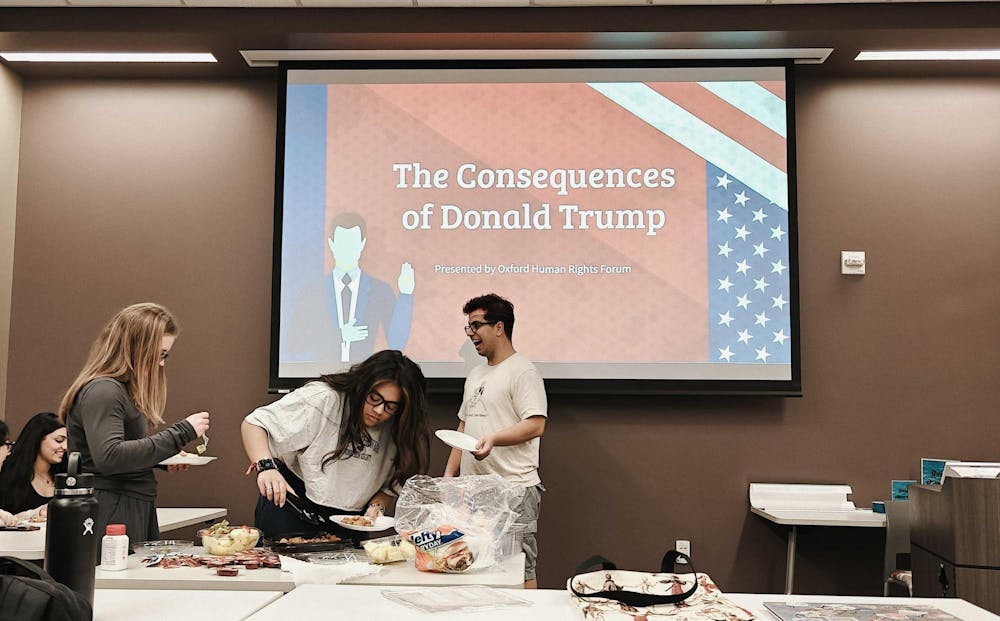Students filed into the Oxford College Library on Feb. 3 to discuss the future under U.S. President Donald Trump's presidency. The event, hosted by the Oxford Human Rights Forum (OxHRF), quickly adopted a somber atmosphere as attendees grappled with the possible ramifications of the past few weeks.
OxHRF’s executive board facilitated conversation about the recently delayed tariffs, Immigration and Customs Enforcement raids and the future of U.S. democracy.
OxHRF President Ameer Alnasser (25Ox) began the conversation by giving a quick summary of Trump’s platform and his recent executive orders. Alnasser then opened the floor for attendees to share their thoughts, earning a general consensus that Trump’s policies are a “net negative” for the country.
“It’s so extreme and so radical,” one attendee said about the recent executive orders. “It’s almost hard to put in the emotion anymore because he’s putting in all these … orders, and he’s saying all these very extreme things. It’s going to harm so many families.”
Other students mentioned feeling scared and frustrated.
Despite the pessimism, some attendees remained optimistic. Multiple students cited the audio essay “Don’t Believe Him” by New York Times journalist Ezra Klein, who argued that Trump does not possess nearly as much power as he claims to have. Alnasser also noted that although the recent political environment feels “tumultuous,” he still holds onto hope.
“I don’t want to think about the worst-case scenario because there are so many thoughts about what it could be,” Alnasser told The Emory Wheel. “[I] hope that our democracy actually means something.”
Many attendees noted that they have had conflicts with family and friends over Trump’s immigration and economic policies, highlighting the increasingly divisive nature of the country’s political environment. OxHRF Freshman Representative Shirin Grewal (26Ox) mentioned disagreeing with her family’s predictions that Trump would lower prices over the next four years.
“Why do we think Trump is going to help lower prices when he … is literally the same as the people who are heading all of these corporations?” Grewal asked. “Take a look at the people who were literally at his inauguration address. All the major heads of AI companies, tech companies. Prices are not coming down.”
Despite the division, some attendees stressed the importance of showing compassion for Trump voters. Alnasser noted that neither party fully represents most voters’ political beliefs.
Adding onto the discussion about unity, attendees like Arantxa Sanchez (25Ox) expressed appreciation for the space the event gave students to speak freely within a divided political environment.
“Oxford, as a campus, is very open to hearing opinions,” Sanchez said. “Possibly opening up more venues for roundtable talks like this would definitely be helpful.”
Near the end of the event, the discussion shifted toward what a possible course of action for those who oppose Trump may look like. Some suggestions included election reform and encouraging involvement with local politics. Above all, though, discussions at the event stressed the importance of showing empathy for those around you.
“Always keep an ear out for everyone because it’s a trying time, especially in Georgia,” Alnasser said.






